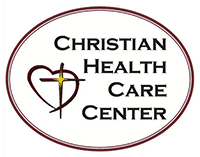This article was published in the Lynden Tribune.
In the ever-evolving landscape of long-term care, the role of nonprofit skilled healthcare centers like Christian Health Care Center in Lynden has become increasingly vital. CHCC, a locally managed nonprofit facility, stands out as a beacon of compassionate care in a state where such institutions are becoming a rarity.
Only 20% of Washington state’s nursing homes operate as nonprofits, and CHCC is among this select group. This distinction underscores the center’s commitment to prioritizing patient care over profit.
Approximately 72% of nursing homes are now owned by for-profit corporations
The long-term care industry has seen a significant shift in recent years with for-profit corporations rapidly taking over. According to a Fortune magazine article, for-profit groups own about 72% of America’s nursing homes. This trend has sparked concern among health care advocates as these corporate entities often prioritize financial gains over the quality of patient care. The implications of this shift are far-reaching, affecting everything from staff morale to patient outcomes.
“Christian Health Care Center’s independent status allows us to make patient-centered decisions free from the pressure to maximize profits. This autonomy is crucial for maintaining high standards of care, and it is worth fighting for and protecting,” says Tonja Myers, 36-year long-term care industry leader and current executive director of Christian Health Care Center.
Nonprofits prioritize the needs of residents and staff
One of the most significant benefits of nonprofit status is the ability to reinvest earnings directly into the facility, staff and programs. Unlike for-profit counterparts that distribute profits to shareholders, CHCC channels resources back into enhancing the quality of care and improving the overall experience for residents and staff.
For residents, the impact of the nonprofit model is profound. Nonprofit facilities can prioritize the needs of residents, offering personalized care plans and a wide range of activities designed to promote physical, emotional, social and, in the case of faith based CHCC, spiritual well-being. This focus on individualized, patient-centered care is often lacking in for-profit facilities where the emphasis on efficiency and cost-cutting can lead to a more impersonal approach.
“At Christian Health Care Center, residents are treated with dignity and respect and their voices are heard in decision-making processes affecting their daily lives,” said Myers.
Locally managed, answerable to local families
CHCC’s commitment to community engagement sets it apart from larger corporate-run facilities. Being locally managed means that Christian Health Care Center is deeply rooted in the community it serves. This connection fosters a sense of trust and accountability as the organization is directly answerable to the families and residents it cares for.
“We need to draw on local resources and key partnerships to ensure the sustainability of this nonprofit and support access to the quality of care that elders in our community deserve,” Myers said. She encourages local churches, businesses and individuals to visit CHCC’s foundation to learn about contributing.
